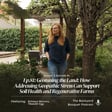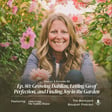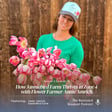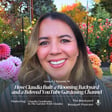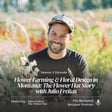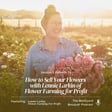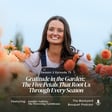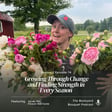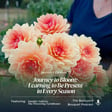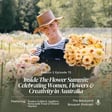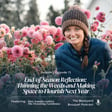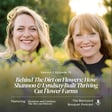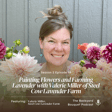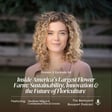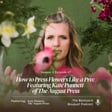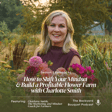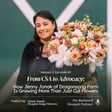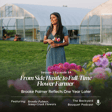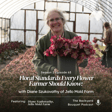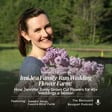
Ep.54: Earth Day in the Garden: Where Flowers Lead Us to Soil, Stewardship & Hope
In this special Earth Day episode of The Backyard Bouquet, flower farmer and garden educator Jennifer Gulizia shares a deeply personal reflection on growing in harmony with the earth—and what it really means to be a steward of soil, beauty, and biodiversity.
This solo episode blends story, science, and soul. Jennifer shares a poem Where Flowers Lead and shares the regenerative journey that led her family to restore 20 acres of neglected farmland—guided by flowers, rooted in soil, and inspired by hope.
Show notes: https://thefloweringfarmhouse.com/2025/04/29/ep-54-earth-day-flower-farming-reflection/
🌿 Inside the episode, you'll hear:
- What Earth Day means through the lens of a gardener and flower farmer
- How Kiss the Ground and Common Ground confirmed her family's decision to become stewards of their new farmland
- The exact moment she stopped spraying neem oil after seeing bees sleep in her dahlias
- How a few books reshaped her thinking
- Simple, impactful actions gardeners can take to care for the earth
- Behind the scenes of her upcoming documentary, Where We Bloom
🎥 Watch the documentaries mentioned:
— Kiss the Ground (Amazon Prime): https://amzn.to/42qveXH
— Common Ground (Amazon Prime): https://amzn.to/449Lxtf
📚 Explore the books referenced:
— Dirt to Soil by Gabe Brown
— For the Love of Soil by Nicole Masters
— The Kindest Garden by Marian Boswall
— Seeds of Hope by Jane Goodall
🌼 Learn more about our documentary film:
Visit The Flowering Farmhouse to learn more about our documentary film: https://thefloweringfarmhouse.com/2024/10/28/regenerative-flower-farm-documentary/
🎧 Whether you’re walking your garden rows, composting your kitchen scraps, or simply reflecting on how to live with more intention this season, this episode is a heartfelt reminder that small acts matter. That flowers aren’t just beautiful—they’re powerful. And that where flowers lead, healing follows.
***Rate, Review, & Follow The Backyard Bouquet***
If you enjoyed this episode, will you please consider leaving the podcast a review? Your review helps make the podcast more discoverable to others and allows me to continue creating more episodes. I'd love to know what you enjoyed most about the episode.
New episodes every week to help keep your garden blooming!
